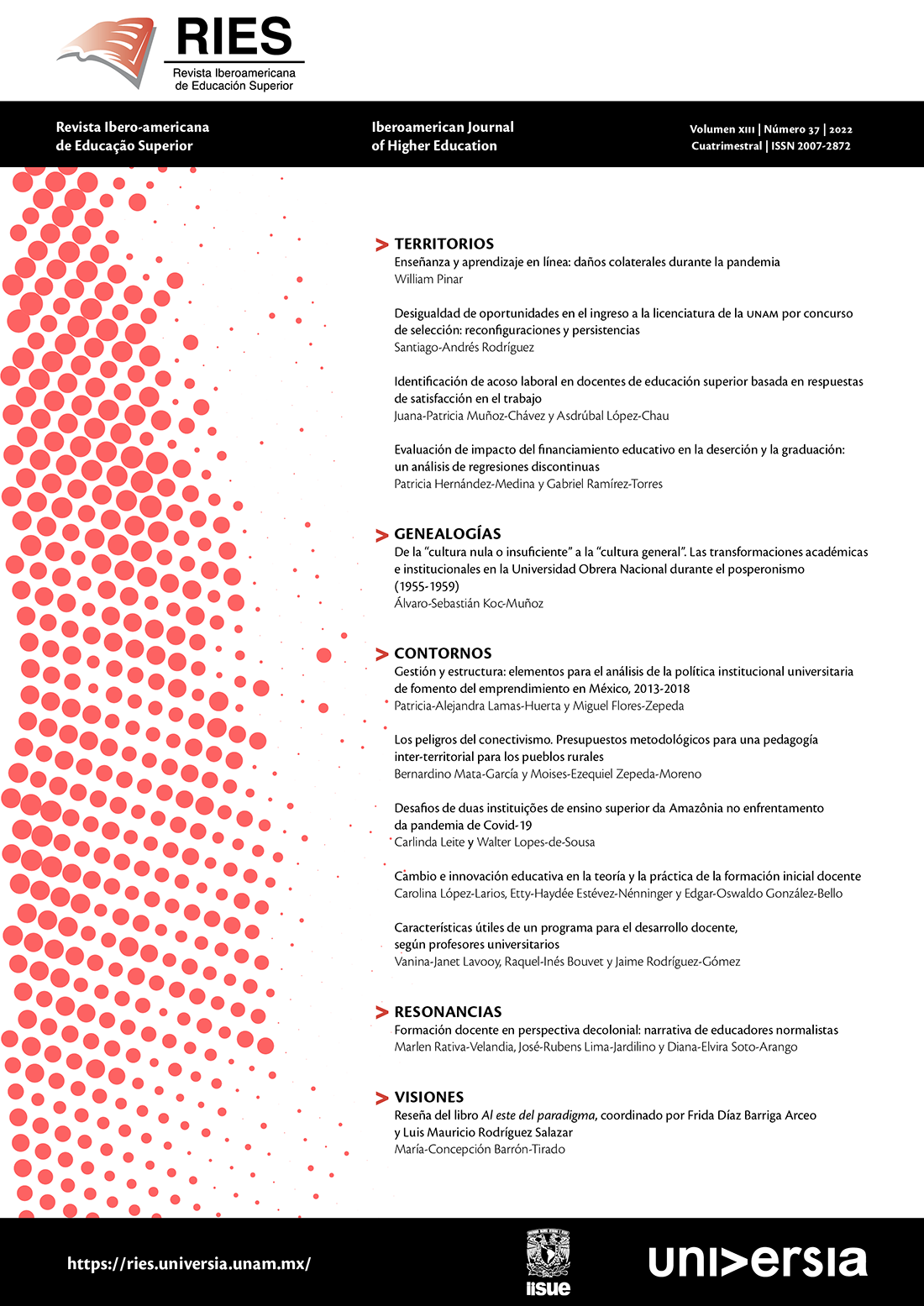Enseñanza y aprendizaje en línea: daños colaterales durante la pandemia
DOI:
https://doi.org/10.22201/iisue.20072872e.2022.37.1301Palabras clave:
aprendizaje en línea, tecnologización, control ideológico, profilicidad, método CurrereResumen
El paso a las clases online tuvo un impacto más allá de las brechas de rendimiento escolar previstas por los especialistas en educación, con la pérdida de espacios naturales de socialización y de ciertas rutinas vinculadas a la asistencia a la escuela que han desencadenado conductas disruptivas. Por otro lado, la tecnologización requerida para la nueva escolarización ha implicado una creciente dataficación de la educación que sin duda repercute en el control ideológico impuesto por el tecnoestado, gracias a la implementación de software diseñado para el monitoreo en tiempo real de los estudiantes y su afán colateral de intervenir en el estado de ánimo, gracias a los avances en neuroinformática. Esta invasión de la vigilancia automatizada trae consigo también la desaparición del espacio interior del yo, un espacio necesario para la autoconciencia y la configuración óptima de la relación con los demás, a lo que hay que añadir el predominio de la identidad llamada "profilicidad" (la asunción de una identidad a través de relatos públicos de uno mismo) que, sin ser sincera ni auténtica, se explaya en los espacios virtuales del yo, un espacio necesario para la autoconciencia y la configuración óptima de la relación con los demás, Una identidad en la que no existe la interioridad y que encierra a los individuos en una cárcel de datos contra la que, según el autor, la única arma es el estudio histórico, que permite comprender las amenazas de la tecnologización a través del conocimiento, o mejor dicho, de la interiorización del pasado.


